人教高中英语选修8 Unit 3 inventors and inventoins -warming-up课件(24张ppt)
文档属性
| 名称 | 人教高中英语选修8 Unit 3 inventors and inventoins -warming-up课件(24张ppt) |

|
|
| 格式 | ppt | ||
| 文件大小 | 2.0MB | ||
| 资源类型 | 教案 | ||
| 版本资源 | 人教版(新课程标准) | ||
| 科目 | 英语 | ||
| 更新时间 | 2021-10-28 18:49:42 | ||
图片预览

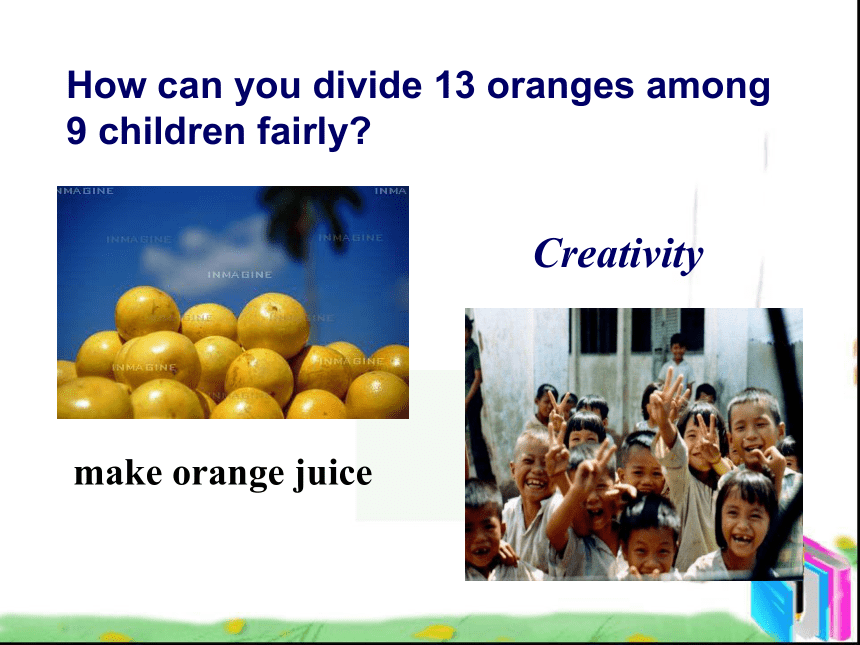
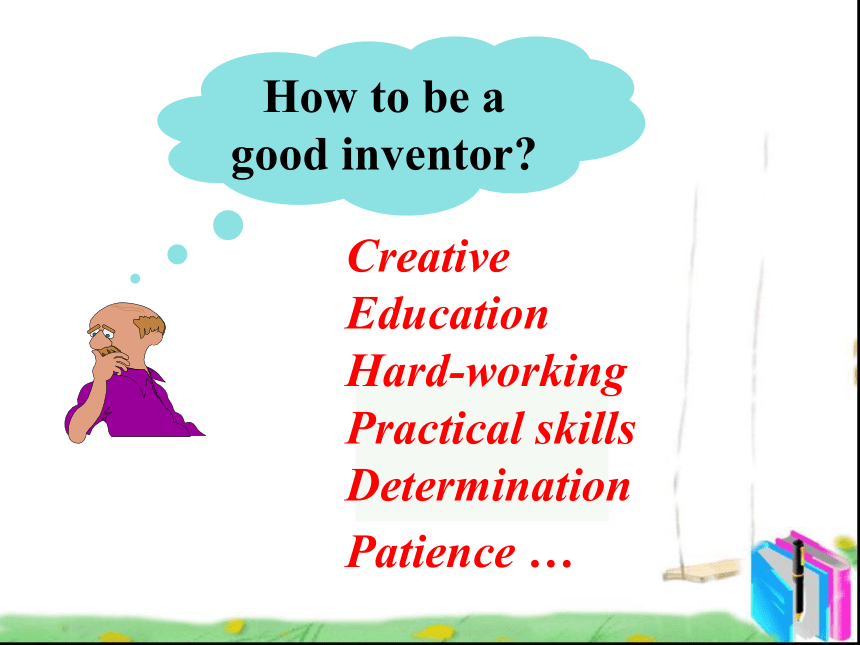

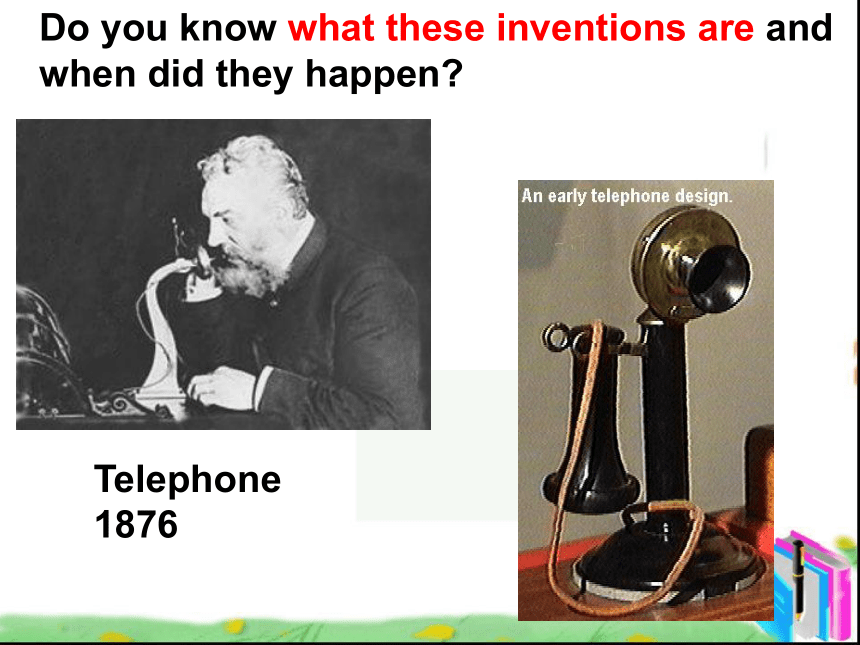
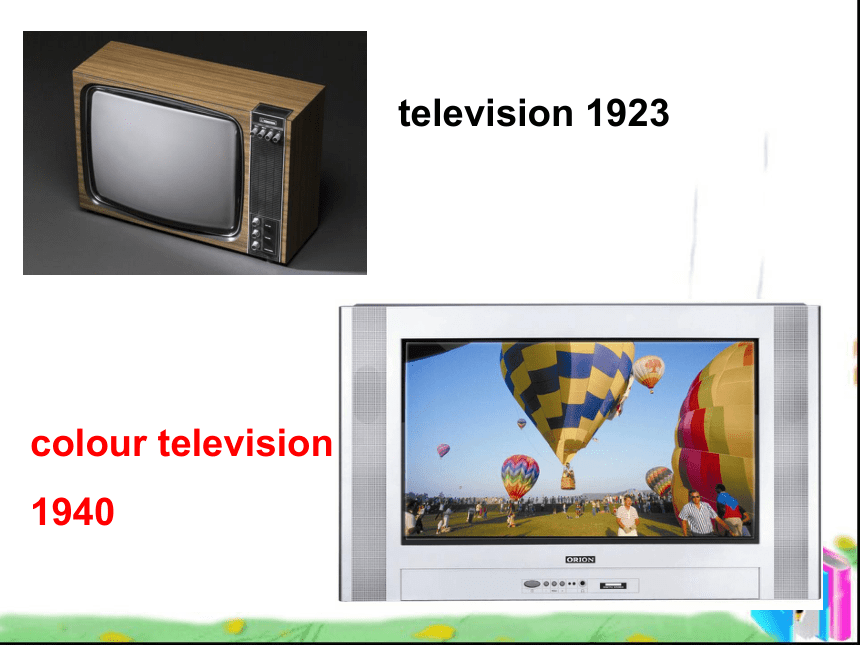
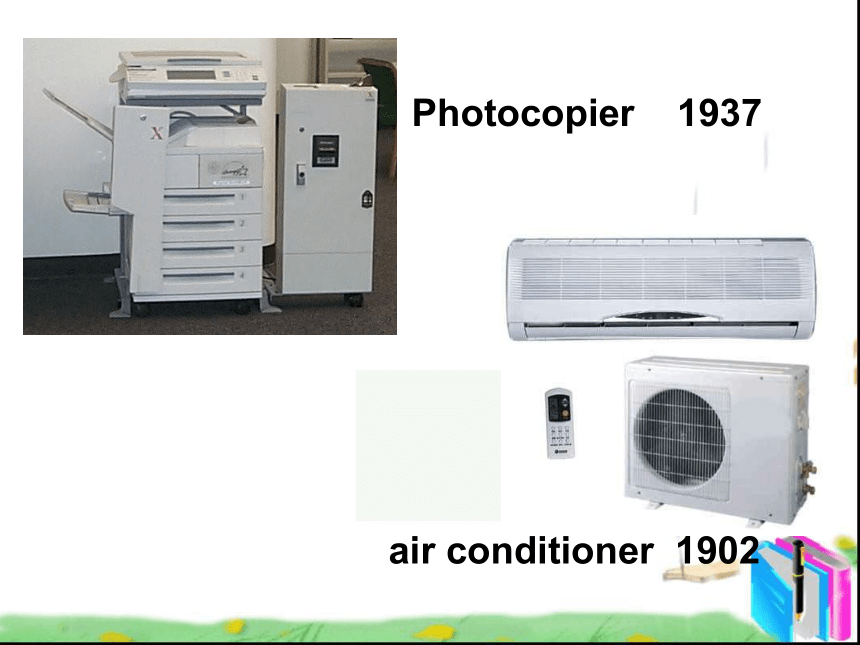
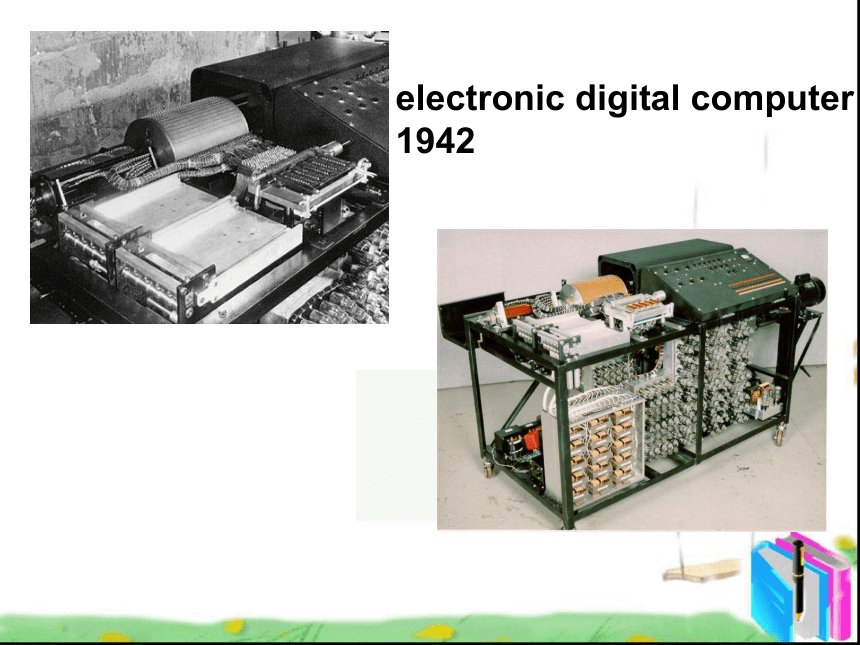
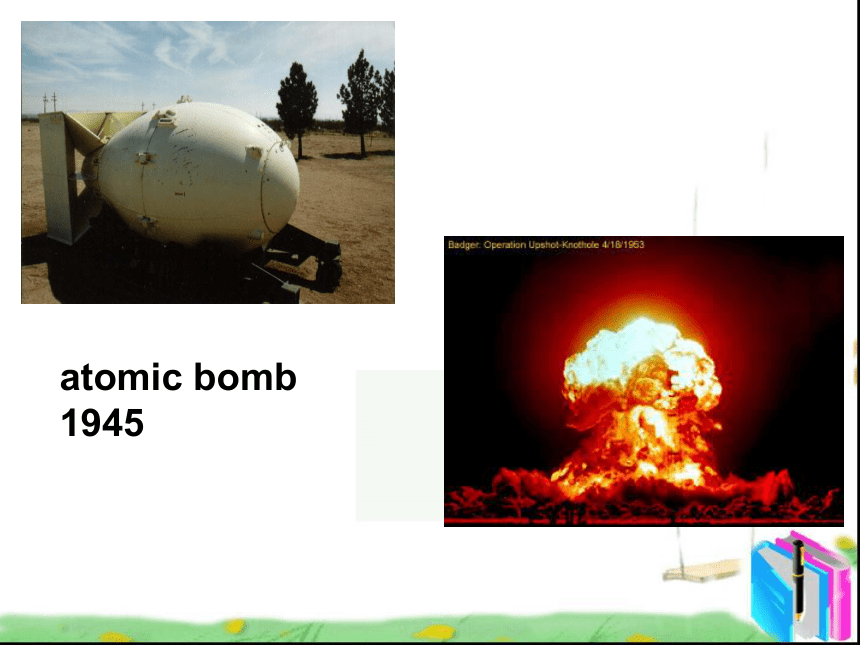
文档简介
(共24张PPT)
Module 8 Unit 3
How can you divide 13 oranges among 9 children fairly
make orange juice
Creativity
How to be a good inventor
Creative
Education
Hard-working
Practical skills
Determination
Patience …
In groups, discuss the inventions you know and then make a list.
Do you know what these inventions are and when did they happen
Telephone 1876
television 1923
colour television
1940
Photocopier 1937
air conditioner 1902
electronic digital computer 1942
atomic bomb 1945
credit cards 1950
Penicillin 1928
Among the inventions above, which invention do you think is the most important one Why How did they change people’s daily lives
Discussion
= =
1 Look at the pictures below
and discuss in pairs which
pictures show inventions and
which show discoveries.
an amphibious car
This is the first car that can travel safely
on water and on land.
Stephenson’s “Rocket”
George Stephenson was one of the first men
to design engines for the railways .
It was a great invention.
The structure of DNA
This was a discovery of
Francis Crick and James
Watson and published
in 1953.
Work out the rules that will help you decide what a discovery is and what an invention is.
(1) A discovery is
A discovery merely makes known something that already exists in nature, such as the discovery of the New Continent by Columbia.
(2) An invention is
An invention is something that created by human being, such as the lighting rod.
an invention
a discovery
universal gravitation
the electric bulb
Now give some examples of discoveries
and inventions.
Discoveries Inventions
Electricity
1. Systems of delivering
electrical light and heating
to homes and offices
2. Household machines for
washing, ironing, keeping
food cold, etc
3. Computers, telephones,
television, etc
Discoveries Inventions
The movement of air
1. Airplane jet engines
2. Air balloons, etc
Machines to help people with serious disease
The circulation
of the blood
X-rays
1. Body scanners to see
whether you are ill
2. Machines to treat
illnesses ( like cancer )
discovery
make a discovery
discover
discoverer
发现
作出一项发现
vt. 发现; 发觉; 找到
n. 发现者
Explanation
work out the rules
work out a suitable order
work out a good idea
work out the problem
work out a plan
制定出
排列出
想出
解决
做出一个计划
Module 8 Unit 3
How can you divide 13 oranges among 9 children fairly
make orange juice
Creativity
How to be a good inventor
Creative
Education
Hard-working
Practical skills
Determination
Patience …
In groups, discuss the inventions you know and then make a list.
Do you know what these inventions are and when did they happen
Telephone 1876
television 1923
colour television
1940
Photocopier 1937
air conditioner 1902
electronic digital computer 1942
atomic bomb 1945
credit cards 1950
Penicillin 1928
Among the inventions above, which invention do you think is the most important one Why How did they change people’s daily lives
Discussion
= =
1 Look at the pictures below
and discuss in pairs which
pictures show inventions and
which show discoveries.
an amphibious car
This is the first car that can travel safely
on water and on land.
Stephenson’s “Rocket”
George Stephenson was one of the first men
to design engines for the railways .
It was a great invention.
The structure of DNA
This was a discovery of
Francis Crick and James
Watson and published
in 1953.
Work out the rules that will help you decide what a discovery is and what an invention is.
(1) A discovery is
A discovery merely makes known something that already exists in nature, such as the discovery of the New Continent by Columbia.
(2) An invention is
An invention is something that created by human being, such as the lighting rod.
an invention
a discovery
universal gravitation
the electric bulb
Now give some examples of discoveries
and inventions.
Discoveries Inventions
Electricity
1. Systems of delivering
electrical light and heating
to homes and offices
2. Household machines for
washing, ironing, keeping
food cold, etc
3. Computers, telephones,
television, etc
Discoveries Inventions
The movement of air
1. Airplane jet engines
2. Air balloons, etc
Machines to help people with serious disease
The circulation
of the blood
X-rays
1. Body scanners to see
whether you are ill
2. Machines to treat
illnesses ( like cancer )
discovery
make a discovery
discover
discoverer
发现
作出一项发现
vt. 发现; 发觉; 找到
n. 发现者
Explanation
work out the rules
work out a suitable order
work out a good idea
work out the problem
work out a plan
制定出
排列出
想出
解决
做出一个计划
